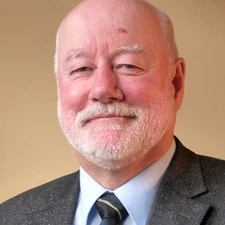Reinhard Dietrich

The 2014 Vening Meinesz Medal is awarded to Reinhard Dietrich for his outstanding accomplishments in the application of terrestrial and satellite geodesy to study cryospheric change and the glacial isostatic adjustment process, and his pioneering quantitative studies of the current state of the polar ice sheets.
Reinhard Dietrich carried out pioneering work in the development and analysis of multidisciplinary geodetic measurements to study the polar environments of our planet during 20th and 21st century climate warming. Dietrich is one of the early pioneers in the emergence of polar geodesy as an important scientific component of cryospheric and climate change sciences. Dietrich has either led, or participated in, nearly every aspect of the rapid evolution of polar geodesy over the past 35 years. His early work in geodesy is most impressive: while based in Potsdam he demonstrated that the tracking of the Laser Geodynamics Satellites provided new constraints on the degree 2 solid Earth Love number.
He was also an important member of the German–Russian scientific teams that were to make new measurements of polar ice sheets. Here, Dietrich developed talents as a multi-disciplinarian and as a leader, making him an iconic figure in geodesy and the cryospheric sciences. Following his appointment as a professor at the Technische Universität Dresden, Dietrich became the key planner and strategist for organising the Scientific Committee on Antarctic Research (SCAR) and several Greenland GPS campaigns in the 1990s. The SCAR’95 campaign established the backbone of all future crustal motion studies to take place in the Antarctic Peninsula and Dronning Maud Land. During the 2000s Dietrich had a hand in nearly every ESA/NASA mission pertaining to space geodetic observation of ice sheets, from finding ice mass balance solutions using altimetry and space gravimetry, to isolating crustal motion signals associated with glacial isostatic adjustment processes.
Dietrich worked with a number of scientists to produce the ground-breaking Potsdam–Dresden–Munich Reprocessing Terrestrial Reference Frame for global GPS analysis. From this work emerged some of the first solutions for glacial isostatic adjustment processes in Antarctica, Greenland and Patagonia. Dietrich’s work defines the new field of polar geodesy, placing it at the very forefront of advanced space-based methods in cryospheric and climate sciences.
